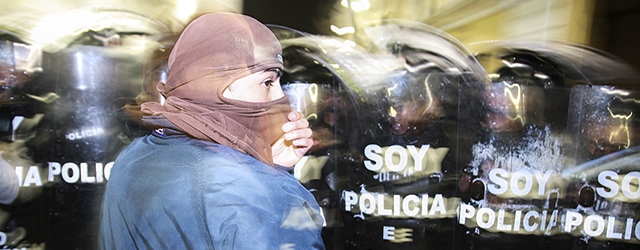The region is ablaze and investors are adjusting their tactics accordingly.

Investors are nervous about the escalating protests rocking governments all over South America—Chile, Bolivia, Ecuador, Peru. Such events could become the new norm, undermining foreign direct investment (FDI) flows.
“There is a tendency in which people are realizing that they can force a government to bend to their demands. This is working, becoming a new normal, as we have seen in Chile and Ecuador,” said Rafael Elias, credit research director at Tellimer, adding that Latin America’s impoverished masses are emulating similar populist upsurges around the world including in Europe.
Elias echoed views that Bolivia’s current election turmoil, in which 14-year-strong leader Evo Morales has declared a state of emergency amid claims that his opposition is organizing a coup d’etat to force him to accept a second-election, could lead to more instability.
In a highly-disputed election Sunday, Morales was said to have won 46.4% of votes against opponent Carlos Mesa’s 37.07%—failing to win by the 10% margin necessaryto avoid a run-off that could end to his presidency.
“I see things much worse in Bolivia,” said Elias. “The fact that the Organization of American States is intervening and demanding a second round is validating the fraud claims and could usher greater unrest.”
The decline of natural gas prices—Bolivia’s key export—are also crippling economic growth, making it harder for the country to maintain its 3%—4% annual economic growth clip of recent years.
Regarding Chile, Elias said the government looks set to quickly resolve nearly a week of violent protests stemming from the subway and other transport-price increases that combined with other dissatisfaction to fuel deadly riots in the capital Santiago.
This is because President Sebastian Pinera not only bowed to demands that he scrap the transport hikes but pledged to purse a new “social agreement” to help provide new advancement opportunities to the middle and lower classes.
Meanwhile, bond investorshave made opportunistic trades betting that Chile’s crisis will soon ebb. They bought the 2028 sovereign bond, pushing its yield down to 2.35% from 2.5% before the protests began last week.
By contrast, bond buyers dumped Bolivia’s benchmark2028 sovereign notes to $0.93 versus $0.96, boosting the yield to 5.42% from 5.02%.
“So far, we are not seeing a negative effect on the Latin American curve [of the riots],”said a debt capital markets banker in New York. “Brazil is still doing well and other economies are showing strength though investors are getting a little worried.”



